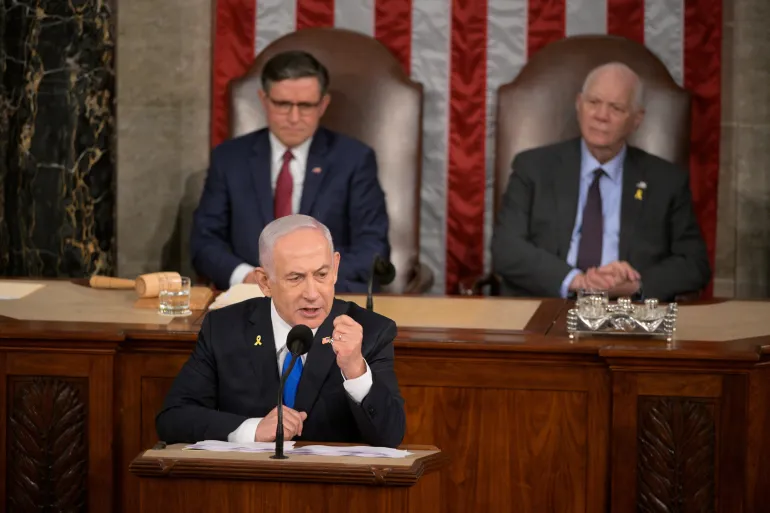The ICC’s move to issue an arrest warrant for Israeli Prime Minister Benjamin Netanyahu has elicited sharp reactions from US politicians, with profound political and diplomatic relations existing between the United States and Israel. Reportedly related to alleged human rights offenses, a blistering debate in Washington among American lawmakers echoed their ideological divisions and broader implications for US foreign policy.
Overwhelming Support from Republicans
The Republicans quickly attacked the move by the ICC, toting it as an attack on a close ally of the United States. Senator Ted Cruz from Texas referred to this move as “an outrageous politicization of international justice” and accused the ICC of harboring anti-Israel biases. Rep Mike Johnson echoed similar sentiments when he said the United States should stand firmly with Israel against baseless accusations.
Prominent GOP figures claimed that the ICC’s actions threaten Israel’s sovereignty and erode its sovereignty right to self-defense. “This shameful overreach of a blatant activist court is a direct attack on our ally, Israel,” Florida Governor Ron DeSantis stated. He vowed his commitment to protecting Israel’s interests at both state and federal levels.
Mixed Reaction Among Democrats
Democratic lawmakers gave a more mixed response. While many, including Senate Majority Leader Chuck Schumer, offered Netanyahu and Israel absolute support, progressive Democrats were critical. Representative Alexandria Ocasio-Cortez (D-NY) called on an impartial investigation into the charges, urging against “any violations of international human rights standards.””Justice must be blind, and no leader should be above accountability,” Rep. Ilhan Omar, D-MN, said. She emphasized that the US must only outright dismiss findings made by the ICC by looking into evidence.
This division within the Democratic Party reflects the growing generational and ideological shift in which progressives are more ready to challenge the lengthy US policies to Israel.
Bipartisan Pushback Against ICC
Despite varying tones, there is widespread bipartisan skepticism about the ICC’s jurisdiction over such Israeli actions. Many American lawmakers from either party insist that the ICC doesn’t have the right to indict Israeli officials since Israel is not a signatory to the Rome Statute, the treaty that set up the court.
State Secretary Antony Blinken stopped short of outright condemnation of the ICC but was clear that direct negotiations between Israelis and Palestinians are the only viable path to peace, this delicately distancing Washington from the court’s intervention.
Broader Implications
The Netanyahu warrant puts the Biden administration in a tight diplomatic spot. It is becoming increasingly complex for it to reconcile Israel’s security needs with the broader human rights considerations as the progressive voices of the Democratic Party grow louder.
For Israel, this warrant would thus further complicate Netanyahu’s policy challenges, whether at home or abroad. To America, it is the litmus test of its importance as a world leader in playing watchdog and team player about alliances and accountability.
As the situation unfolds, US policymakers will have to tread this legal and moral mire, balancing their support for Israel with a commitment to international norms. This may be when the course of U.S.-Israel relations takes a permanent turn for several years into the future.















